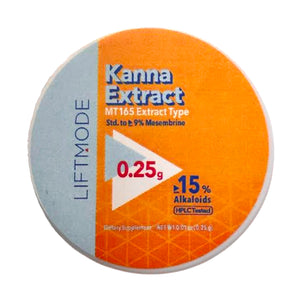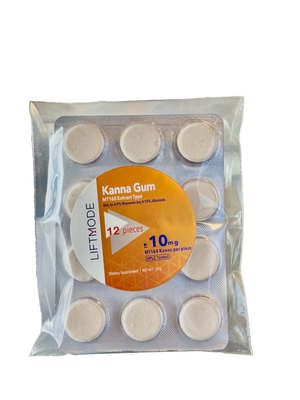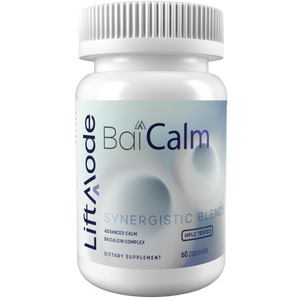Rhodiola rosea, also known as “golden root” or “artic root” is a medicinal plant that has been used for centuries in traditional medicines. Rhodiola rosea adapts to the body’s needs – meaning, it has a calming effect in moments of stress, and boosts energy when one is fatigued.
[1]
This article will explore the potential side effects and interactions of Rhodiola rosea. If you have any health conditions, please make sure to consult your doctor before using
Rodhiola rosea extract supplements.
![]()
How to take Rhodiola Rosea supplements
The optimal dose of Rhodiola rosea to improve symptoms of fatigue and stress is around 200 to 600 mg/day in a 5 percent rosavin and 2 percent salidroside supplement. Start small and work your way up. It is best taken on an empty stomach, around 15 minutes before a meal, typically split into two servings throughout the day. Avoid taking before bedtime as it has a slight stimulatory effect in higher doses.
[2]
Traditional Chinese and Ayurvedic practices believe that Rhodiola rosea, like many other herbs, mushrooms and roots, are best absorbed with a healthy fat, such as ghee or coconut oil, and a warming spice, such as black pepper.
[3]
Supplementing with Rhodiola rosea
may result in a
promising array of health benefits including improving mental and physical fatigue we well as boosting mood and cognitive function.
This article is primarily focused on the Rhodiola rosea side effects. For more information about the benefits of Rhodiola rosea, check out our great blog post about
Rhodiola Rosea Benefits - Top 3 Ways Golden Root can Benefit You Today!
![]()
Rhodiola Rosea Side Effects
Fortunately, Rhodiola rosea side effects are generally mild and uncommon at recommended dosage. Although this dietary supplement is considered safe, high doses may cause head pain, dizziness and may result in difficulty sleeping. If you have any underlying medical conditions, it is recommended that you first consult with a doctor before using this supplement.
[4] [5]
The risk of drug interactions and side effects is negligible. Nonetheless, it is important to understand that Rhodiola rosea extract may have some adverse effects, especially for:
-
Pregnant and breastfeeding women: Information regarding safety of this supplement for pregnant and nursing women is insufficient, and therefore should be avoided. [6]
-
Children: Small doses have been given to children without adverse effects. Nevertheless, researchers suggest that dosages given to 8-12 years old must be kept low and need to be individualised.
-
People with bleeding disorders: The herbal extract has the potential to slow your body’s ability to form blood clots. Avoid Rhodiola rosea if you have a bleeding disorder.
-
People with high blood sugar levels: Rhodiola rosea may reduce blood sugar levels. It may increase the risk of blood sugar levels becoming too low. [7]
-
People with low blood pressure: Rhodiola rosea may cause blood pressure to become too low. Individuals with low blood pressure should be careful when using Rhodiola rosea extract.
-
People who suffer from immune system conditions: Rhodiola has the potential to stimulate the immune system. Individuals with immune conditions should consult their physician before trying Rhodiola rosea.
Rhodiola Rosea Side Effects - Interactions
Despite the lack of documented information regarding Rhodiola rosea interactions, the plant may potentially interact with the following medications:
-
Blood pressure medications: May interact with these as they both lower your blood pressure levels. Taking Rhodiola rosea with blood pressure medications could cause your blood pressure to fall too low.
-
Caffeine: May increase the stimulatory effects of caffeine.
-
Blood sugar medicines: May interact with these as they both lower your blood sugar levels. Taking Rhodiola rosea supplements with antidiabetic medication could cause your blood pressure to fall too low
Rhodiola rosea may also have positive interactions with other dietary supplements and medications. Rhodiola Rosea may be effective at reducing some of the side effects of OTC medications.
[8]
![]()
Conclusion: Side Effects of Rhodiola Rosea
In summary, Rhodiola rosea is a tremendous supplement for those wishing to reduce stress, improve overall mood and boost physical and mental performance. It strengthens the immune system by protecting the body from mental, physical and environmental stress, and is very promising for improving fatigue as well as a number of mental health conditions.
Though the therapeutic properties of Rhodiola rosea have been widely recognized for centuries, the side effects and interactions or the herb are not well documented. This is attributed to the fact that Rhodiola Rosea extract is generally considered to be very safe.
The recommended dosage for Rhodiola rosea is 200-600 mg per day. To enhance absorption, some suggest taking it with a healthy fat.
While Rhodiola rosea side effects are minimal and mild, some may experience headaches, and difficulty sleeping when consumed in high doses. The most important consideration when consuming the herbal extract is the potential interactions that can occur with a a few medications.
[1] Kelly, G.S., 2001. Rhodiola rosea: a possible plant adaptogen. Alternative Medicine Review 6 (3), 293–302.
[2] Edwards, D., Heufelder, A., & Zimmermann, A. (2012). Therapeutic effects and safety of Rhodiola rosea extract WS® 1375 in subjects with life-stress symptoms--results of an open-label study.
Phytotherapy research : PTR,
26(8), 1220–1225. https://doi.org/10.1002/ptr.3712
[3] “Rhodiola Benefits: Burning Fat for Energy, Beating Depression + More”. Draxe.com available online from
https://draxe.com/nutrition/herbs/rhodiola-benefits-burning-fat-for-energy-and-beating-depression/
[4] “
Rhodiola Rosea”. Drugs.com, available online from
https://www.drugs.com/npp/rhodiola-rosea.html
[5] Azizov AP, Seifulla RD. The effect of elton, leveton, fitoton and adapton on the work capacity of experimental animals [in Russian].
Eksp Klin Farmakol. 1998;61(3):61-63.9690082
[6] “
Rhodiola”. WebMD.com, available online from
https://www.webmd.com/vitamins/ai/ingredientmono-883/rhodiola
[7] “
Rhodiola”. WebMD.com, available online from
https://www.webmd.com/vitamins/ai/ingredientmono-883/rhodiola
[8] “
Rhodiola”. WebMD.com, available online from
https://www.webmd.com/vitamins/ai/ingredientmono-883/rhodiola




